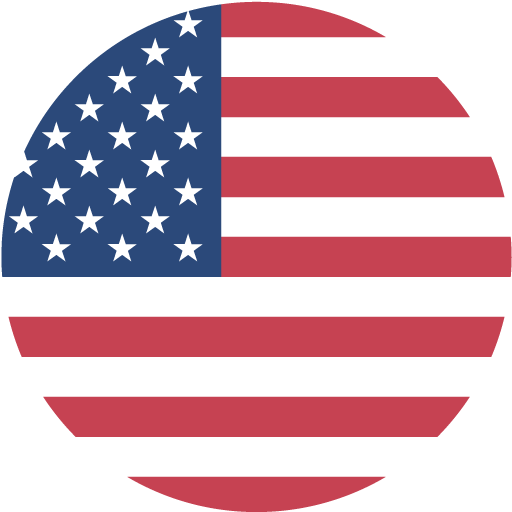Making your own laundry soap may seem like a fun and cost-effective idea, but it can bring some challenges. Unlike regulated detergents with balanced formulations, homemade soaps often rely on basic ingredients that can leave residue on fabrics, affect machine performance, and wear clothes down over time. We’ll discuss the negative impacts of DIY laundry soaps on your health and your laundry, and what alternatives are available.
Assessing Health Risks of DIY Laundry Soap
Here are some of the main health risks associated with making your own laundry soap:
Skin Irritation
One of the main reasons why DIY laundry soap is bad is the effect it can have on your skin. Because your DIY laundry soap doesn’t contain any preservatives like a traditional detergent would, it can quickly become a breeding ground for bacteria and fungi.
When you “wash” and wear your clothes with a homemade laundry soap, you could experience skin irritations and allergies from having the bacteria close to your skin. High pH levels and leftover soap residue can lead to itching, rashes, and dryness, and it’s especially dangerous for babies, young children, and those who already have sensitive skin.
Commercial hypoallergenic detergents undergo rigorous testing to ensure they’re suitable for use. Freddie laundry detergent sheets contain protease to give your clothes a good clean and are formulated without dyes, phosphates, parabens, brighteners, or 1,4-dioxane.
Respiratory Issues
Homemade laundry soaps can cause respiratory issues because of their lack of quality control tests. Unregulated levels of powdered ingredients, such as borax and baking soda, can become airborne during mixing or while in use. If inhaled, they can cause throat, nose, and chest irritation. This is particularly dangerous if you suffer from asthma, as it exacerbates already existing respiratory complaints. Dissolvable laundry detergent sheets are a great alternative, removing the risk of inhaling harmful particles.
Chemical Burns
DIY laundry detergents often have high concentrations of different ingredients, and many of us don’t truly understand how they can react with our skin. Some mixtures may be too alkaline, which can cause dryness and sensitivity in the short term; however, long-term exposure can lead to mild chemical burns. Even if you’re not directly in contact with the mixture, the soap can cling to your clothes’ fabric and be in direct contact with your skin, triggering a reaction.
Bacteria Buildup on Clothes
Your DIY laundry soap won’t clean your clothes in the same way a commercial laundry detergent would. Over time, your clothes’ fibers will become clogged with residue that can’t be rinsed away. This buildup not only makes clothes feel like there’s a film on them, but it also harbors bacteria, allergens, and other irritants. Wearing clothes like these close to your body can irritate skin, trap odors, and is much less hygienic.
Eye Irritation
Borax and baking soda are common ingredients used in homemade laundry detergents. These two ingredients can cause irritation when they come into contact with the eyes and nose, causing stinging, watering, or a burning sensation. It can be worse for anyone who deals with sensitive eyes or those who wear contacts. Repeated exposure to these airborne ingredients can dry out your mucous membranes, leaving you more susceptible to infections and irritation.
Evaluating Garment and Fabric Damage from DIY Laundry Soap
A common issue with DIY laundry soap is that it’s simply far too harsh to regularly use on your clothes. It leaves behind residue on your clothes and negatively affects the wear of the garments. Soap residue can build up and cling to the fibers of your clothing, creating a water-repelling effect. Over time, it will be more and more difficult to actually clean your clothes—think trapped odors, oils, and stains that just won’t come out—leading to clothes feeling stiff, colors fading, seams weakening, and faster deterioration in general.
While attempting to make your own DIY laundry soap may seem harmless, it could end up costing you your wardrobe. Instead, opt for a laundry detergent that ticks all the right boxes. Freddie laundry sheets are free from harmful chemicals, including phosphates, parabens, dyes, brighteners, and 1,4-dioxane. Freddie uses plant-derived surfactants and gentle cleaning agents to give a thorough clean every time. It also comes in super compact, low-waste packaging and is a great alternative to homemade laundry soap.
Impact on Washing Machines and Plumbing
If damaging your clothes wasn’t bad enough, DIY laundry soap can also affect the lifespan of your washing machine. A lot of DIYers make their own laundry soap in a bid to either save money or do better for the environment. In reality, because homemade laundry soap lacks any quality control testing, the mix of ingredient concentrations can create unpredictable results. In simple terms, you don’t exactly know the outcome your concoction will have on your machine.
Traditional detergents usually use a number of surfactants that dictate how they react in water. Laundry soaps, on the other hand, tend to contain fats and oils, which in turn can build up in your machine and lead to mold or mildew. Some homemade detergents can clog up drains, and others may create excessive suds that could interfere with your machine. So, trying to save a few dollars in the short term could lead to a very expensive mistake in the long term.
Environmental Considerations of DIY Laundry Soap
A lot of people don’t think about the environmental side of homemade laundry soap, but it can actually cause more problems than you’d expect. It might feel like tossing a few kitchen ingredients together is automatically more “green,” but that’s not always true. DIY soaps often don’t dissolve all the way in water, which means leftover bits can end up in wastewater systems. Over time, that buildup can clog things up or interfere with how water is treated. On top of that, ingredients like borax or washing soda can change the pH balance of the water, which isn’t great for local ecosystems once it’s released back into the environment.
Frequently Asked Questions
Is Homemade Laundry Detergent Safe?
In general, homemade laundry detergent is not safe for use. There are many risks associated with DIY laundry soap, including skin irritations, damage to clothing and washing machines, and environmental impacts. Instead, opt for a straightforward alternative designed to help minimize residue, reduce storage clutter, and simplify laundry without plastic jugs.
What Fabrics Should Avoid Homemade Soap?
Homemade soap can damage any fabric due to its lack of balanced pH levels and surfactant blends, which can weaken fibers, cause color fading, fail to clean the garment correctly, and trap odors. In particular, delicate fabrics like silk and wool are highly susceptible to damage.
What Are the Four Banned Laundry Detergents?
In a 2023 report, Arm & Hammer Clean Burst, Tide Original, Arm & Hammer Sensitive Skin Free & Clear, and Gain Original + Aroma Boost were banned in the state of New York as they all contained more than 3 PPM of 1,4-dioxane. Since the report, Tide Original and Gain Original + Aroma Boost have reformulated their products to fit within state requirements.
Can Laundry Detergent Cause Health Issues?
Some laundry detergents can cause health issues. There are detergents on the market that contain harmful chemicals like phosphates, brighteners, and 1,4-dioxane. These can cause skin irritations, allergies, and respiratory issues. Instead, opt for a thoughtful detergent to avoid all the potential harmful side effects.
Ready to Try with Freddie's Laundry Detergent Sheets?
Homemade laundry soaps might seem like a good idea to cut costs, but from residue buildup to machine damage, they often do more harm than good. Instead, try Freddie’s pre-measured laundry detergent sheets—formulated without dyes, phosphates, parabens, brighteners, or 1,4-dioxane, and packaged without plastic jugs. They’re designed to simplify laundry and reduce storage clutter while offering a straightforward alternative to DIY recipes.


 United States
United States
 Canada
Canada
 Australia
Australia
 United Kingdom
United Kingdom
 Belgium
Belgium
 France
France
 Germany
Germany
 Hong Kong
Hong Kong
 Italy
Italy
 Japan
Japan
 New Zealand
New Zealand
 Portugal
Portugal
 Singapore
Singapore
 Sweden
Sweden
 United Arab Emirates
United Arab Emirates

